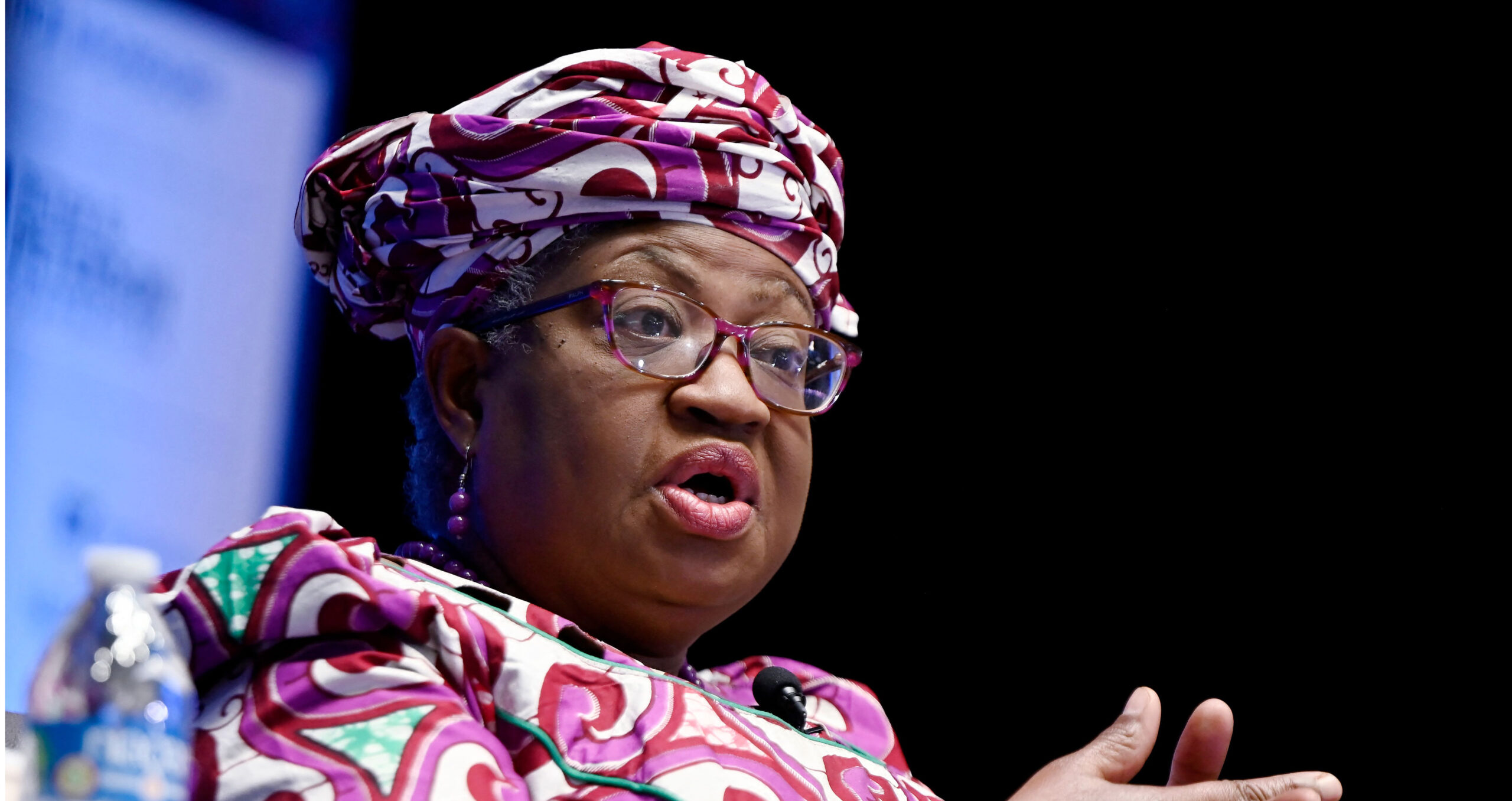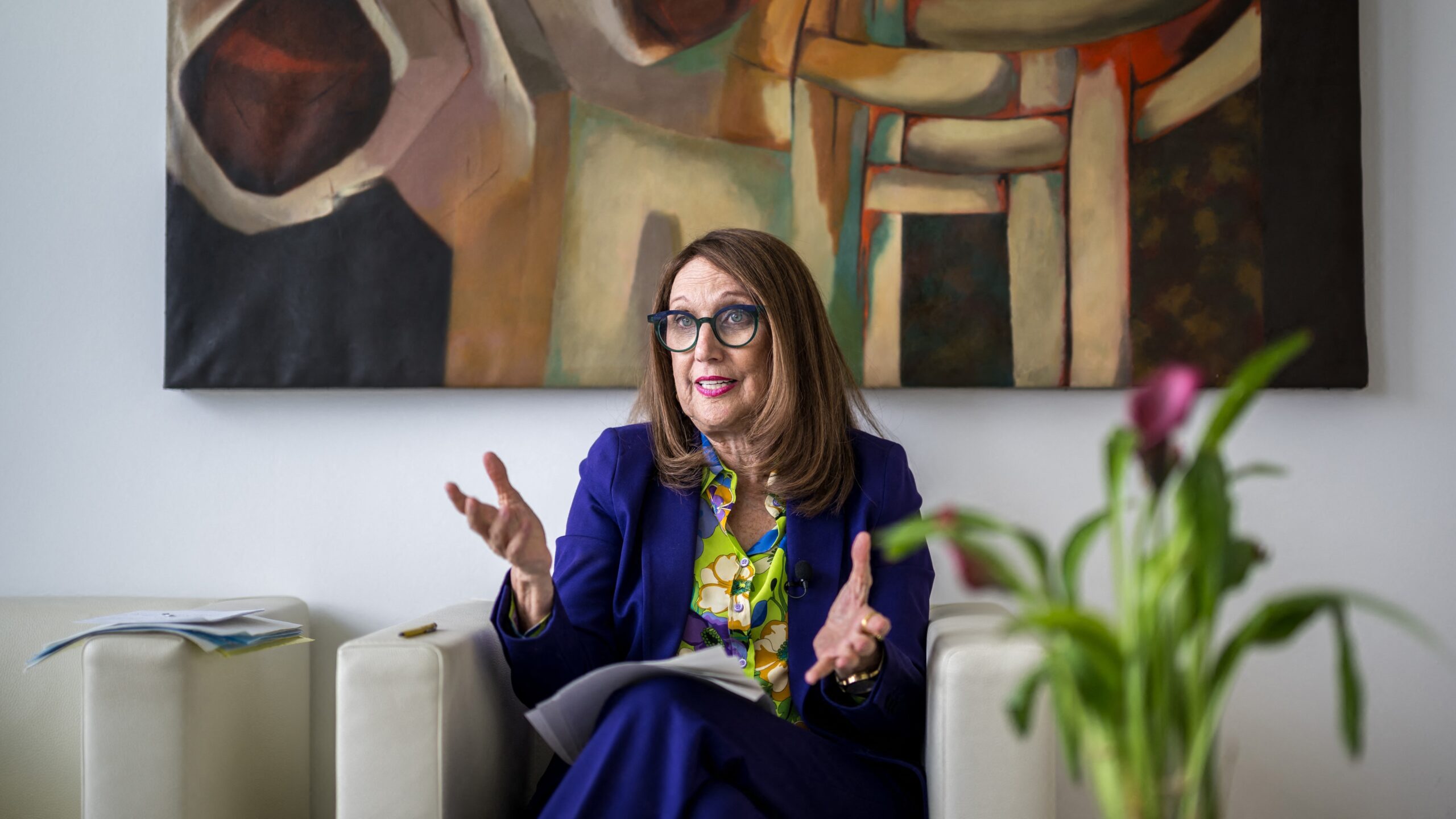
Paris summit: trade is ‘big missing piece’ of climate jigsaw, says WTO head

Ngozi Okonjo-Iweala says a multilateral trading system is needed to assure global food security and sustainable economic growth, as the New Global Financing Pact summit comes to an end.
Trade remains a missing piece of the climate jigsaw, said World Trade Organization director-general Ngozi Okonjo-Iweala on Friday during the final high-level session of the New Global Financing Pact summit, where a climate levy on international shipping drew strong support from the EU during the two days of discussions. The proposed levy, however, received a lukewarm response from the rest of the world, and the idea of a similar instrument on aviation was granted little air time.
While there was widespread agreement among ministers to reform the global financial system during the meeting in Paris, France, “trade was a big missing piece”, said Okonjo-Iweala, making a point of repeating the sentence twice.
“Trade very rarely [comes] up as a response to the climate crisis or to deliver the [UN’s Sustainable Development Goals],” said Okonjo-Iweala. This omission was problematic, since any decision on financing climate adaptation and mitigation in poorer countries “will fall short if the world trade system is not mobilised as a force multiplier”.
Trade is part of the solution to the climate crisis, to assure global food security and to meet the SDGs as “trade can drag down the costs of new technologies and allow the scaling up of production”, she said. “An open, rules-based, multilateral trading system is needed.”
She warned that “fragmentation” would slow the growth of green technology, continue economic inequality, and even lead to increased greenhouse gas emissions. “Developing countries must be included in the diversification of supply chains and have the policy space to grow and industrialise.”
This inclusive approach to trade is known as “reglobalisation”, Okonjo-Iweala said, urging delegates to “walk away with this word”.
“Trade policy reform can help alleviate the fiscal burden of developing countries,” she added — repurposing agricultural and fossil fuel subsidies would free up hundreds of billions of dollars for climate finance.
“The WTO is transforming. To deliver on climate change we must collaborate with other organisations,” Okonjo-Iweala said, adding that COP28 in December has “the potential to deliver significant policy progress at the trade/climate interface”.
The COP presidency has agreed to hold a trade day at the international climate meeting in Dubai.
Shipping levy
Ahead of the Paris summit, the Solomon Islands and the Marshall Islands had proposed a levy on shipping emissions to help fund climate action in the developing world. Sustainable Views understands that the idea received the full backing of the EU and its 27 member states, while other countries, including South Korea and Kenya, expressed general support for some kind of tax or levy on international shipping.
China and the US are not believed to be supportive of the proposal. The issue is expected to be discussed at the July meeting of the International Maritime Organization.
The idea of an air passenger or ticket levy on flights, however, received less attention in discussions. While a shipping levy would add little if anything to consumer bills, an air ticket levy would probably have a much bigger impact on the aviation industry and flight prices, experts have said.
Meanwhile, European Commission president Ursula von der Leyen proposed that the world learn from the EU’s carbon market experiences and look at “global carbon pricing”. She highlighted that “only 4 per cent, almost nothing” of global greenhouse gas emissions are covered by carbon pricing, but that even this low level of coverage generated $55bn in 2022.
“It is really worth thinking about how we could increase the level of carbon pricing,” von der Leyen said in Paris. If 60 per cent of the G20’s greenhouse gas emissions were covered by carbon pricing, “you can imagine what could be generated and how much investment this could liberate to go into climate finance”, she added.
Concrete commitments
Among the concrete commitments made in Paris include the launch of a Just Energy Transition Partnership to support Senegal’s efforts to achieve universal access to energy and a low-carbon, resilient and sustainable energy system, led by France, Germany, the EU, the UK and Canada.
Rich nations also finally said they would meet the $100bn a year in climate finance for developing nations, promised back in 2009 to have been reached by 2020, after various countries, including France, Belgium and Switzerland, agreed to follow the example of Japan and rechannel their special drawing rights to poorer countries.
Meanwhile, philanthropists, including the Bezos Earth Fund and conservation funds, supported by climate leaders such as US climate envoy John Kerry, agreed to lead new financing mechanisms to help protect and fund natural capital in line with the commitments of the Global Biodiversity Framework signed in Montreal at COP15 last December.
World Bank leadership
While the big question was how initiatives agreed in Paris will be developed at COP28, all eyes, in the immediate future, are on Ajay Banga, the new president of the World Bank. Banga will be expected of leading the change in the multilateral development banks that delegates at the conference agreed is so vitally needed to deal with climate change and the other crisis facing the world.
In the final press conference, Banga suggested he is up to the challenge. “I’ve been three weeks in this job and Bretton Woods [the conference that led to the creation of the World Bank and the IMF] was created in three weeks. My honeymoon is over,” he said.
Banga reiterated the theme he touched on several times in recent days — the fact that “the global south has more young people than any part of the world”, and that tackling climate change and poverty must also be linked to employment and opportunity. “Jobs are the single best way to drive a nail into the coffin of poverty,” he said.
Similar Articles

Farmland investment and ‘green grab’ threatens food security

In Brief: US EPA issues final methane emissions reporting rule; Australia publishes ‘Future gas strategy’


